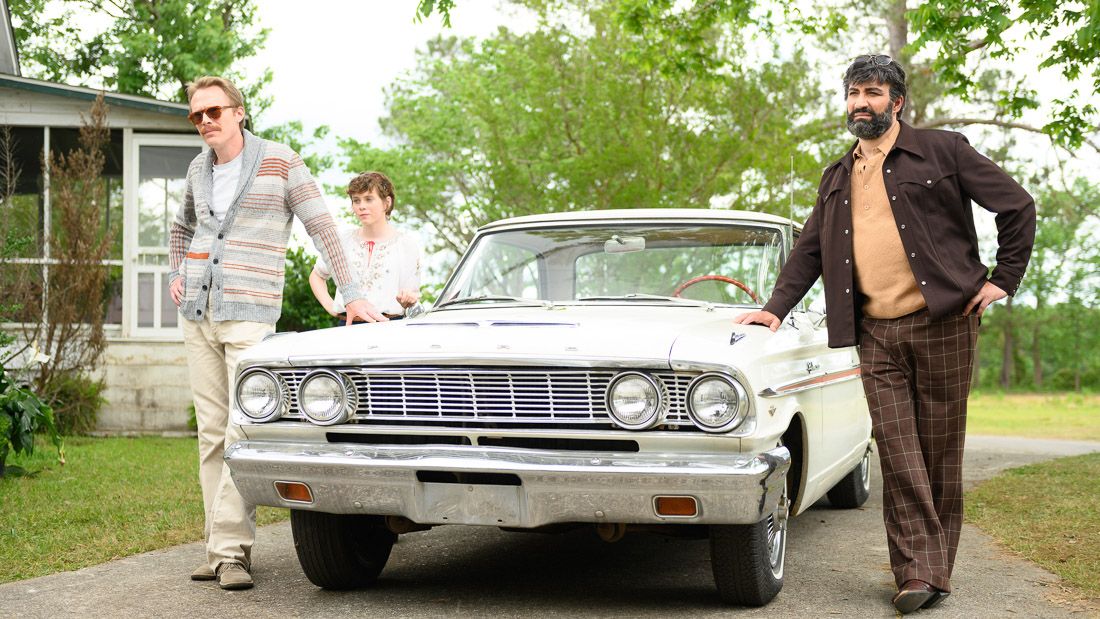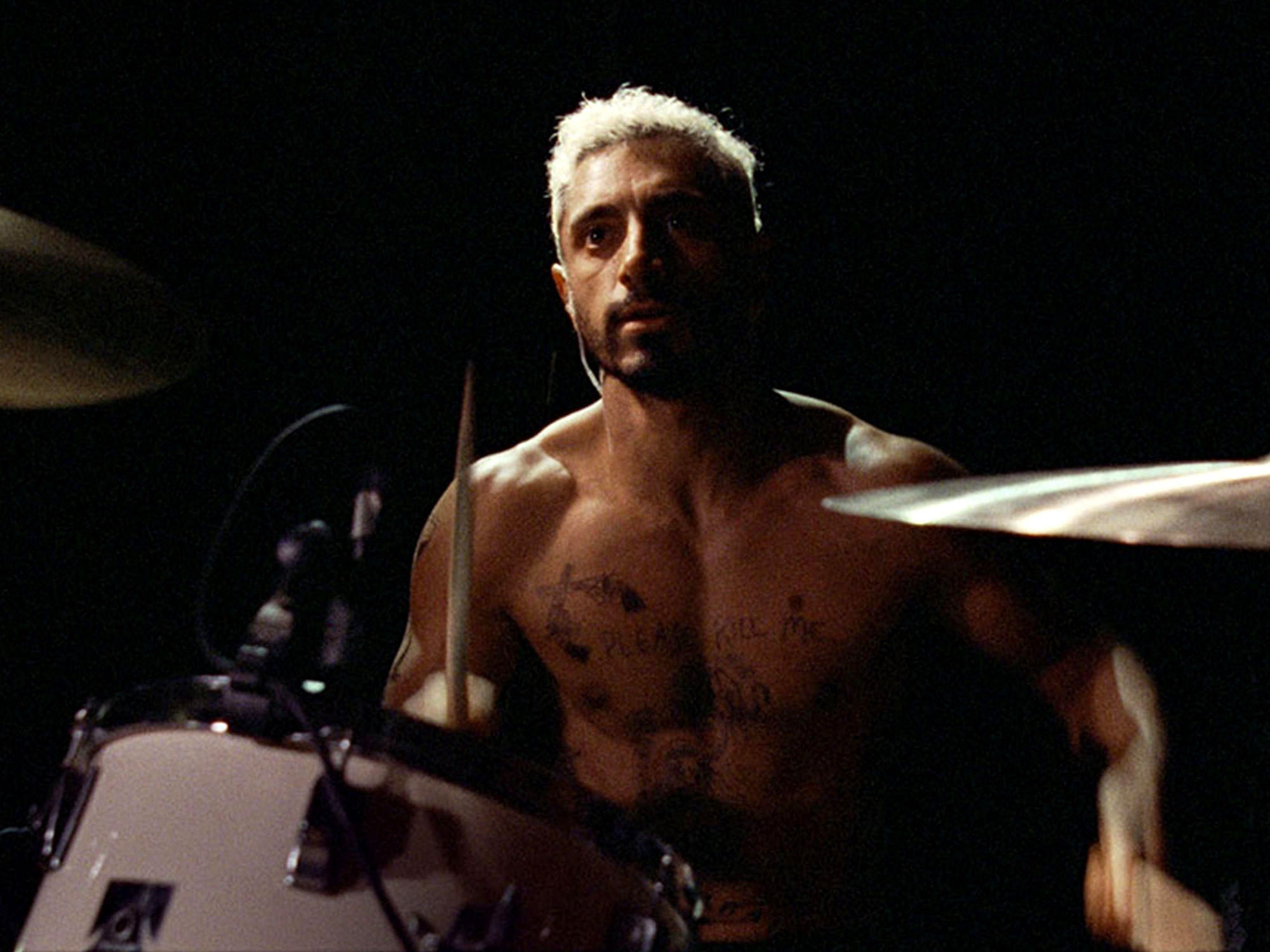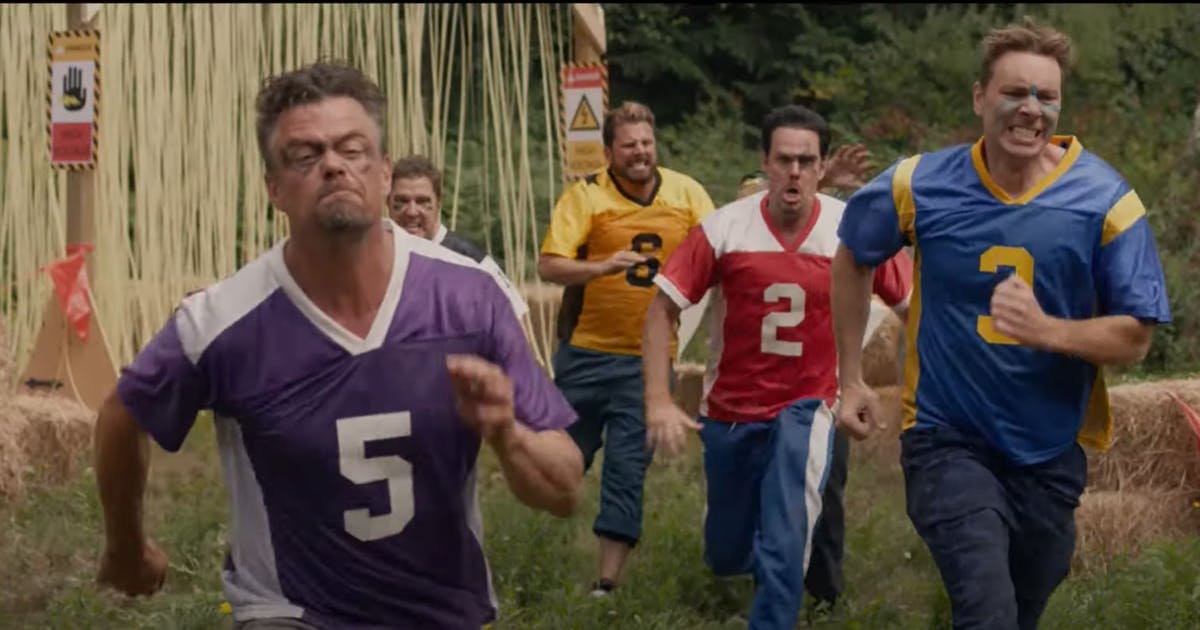The Croods: A New Age
by George Wolf
At least two things have happened since we met The Croods seven years ago. One, we’ve forgotten about the Croods, and two, Dreamworks has plotted their return.
A New Age gets the caveman clan back together with some talented new voices and a hipper approach for a sequel that easily ups the fun factor from part one.
The orphaned Guy (voiced by Ryan Reynolds) has become part of pack Crood, which is fine with everyone except papa Grug (Nicolas Cage), who isn’t wild about the teen hormones raging between Guy and Eep (Emma Stone).
The nomadic gang is continuing their search for the elusive “tomorrow” when they stumble onto the Stone Age paradise of Phil and Hope Betterman (Peter Dinklage and Leslie Mann, both priceless). The Betterman’s lifestyle puts the “New Age” in this tale, and they hatch a plan to send the barbaric Croods on their way while keeping Guy for their daughter Dawn (Kelly Marie Tran).
But a funny thing happens along the way. Check that, many things happen, and plenty of them funny, in a film that nearly gets derailed by the sheer number of characters and convolutions it throws at us.
The new writing team of Kevin Hageman, Dan Hageman and Paul Fisher keeps the adventure consistently madcap with some frequent LOLs (those Punch Monkeys are a riot) and even topical lessons on conservation, individuality and girl power.
Or maybe that should read Granny Power, since it is Gran’s (Cloris Leachman) warrior past that inspires the ladies to don facepaint, take nicknames and crank up a theme song from Haim as they take a stand against some imposing marauders.
Director Joel Crawford – an animation vet – keeps his feature debut fast moving and stylish, drawing performances from his talented cast (which also includes Catherine Keener and Clark Duke) that consistently remind you how important the “acting” can be in voice acting.
By the time Tenacious D drops in to see what condition the Partridge Family’s “I Think I Love You” is in, the whole affair starts to feel like some sort of animated head trip.
Yeah, a little sharper focus wouldn’t hurt, but A New Age delivers the good time you forgot to remember to wonder where it’s been.














